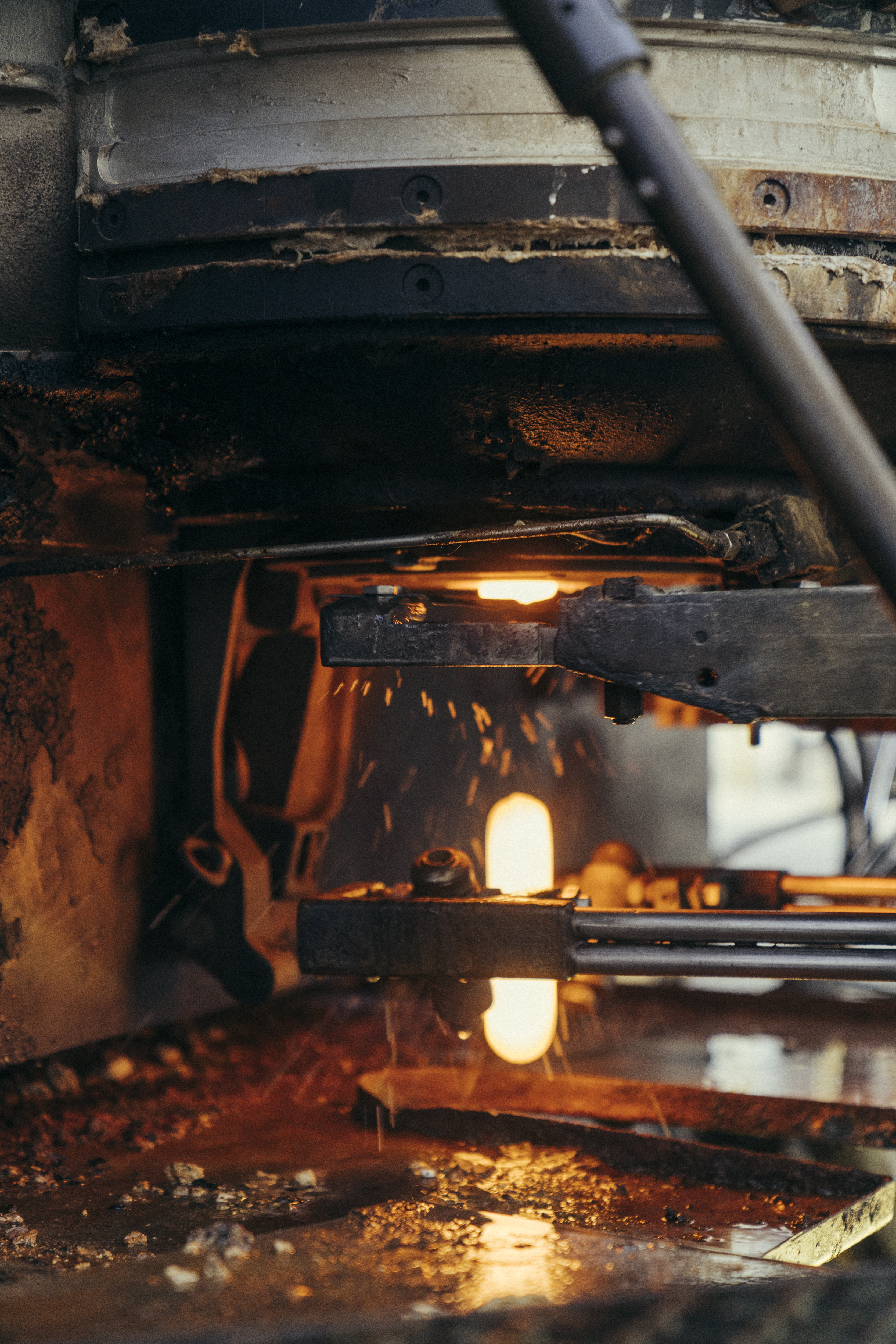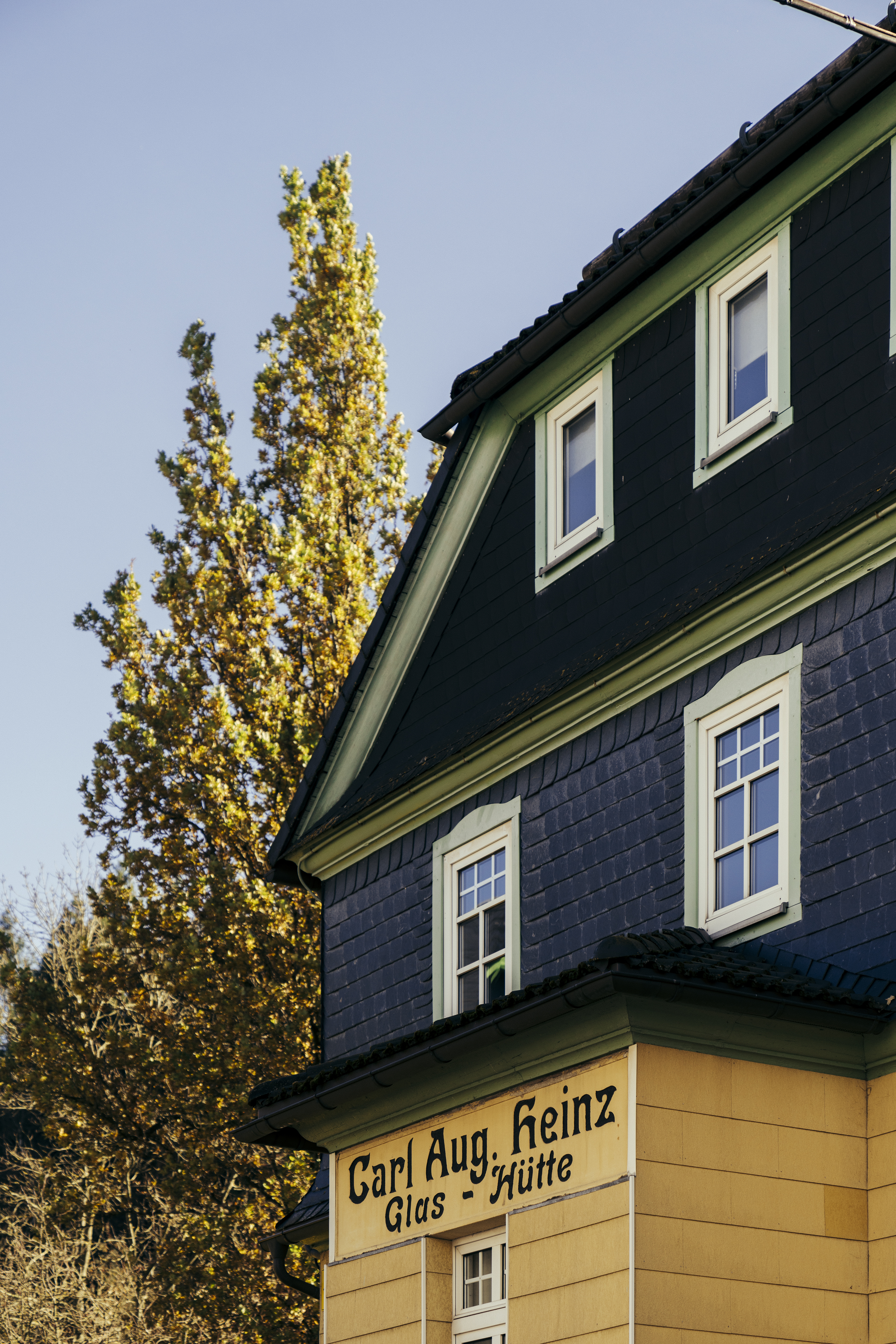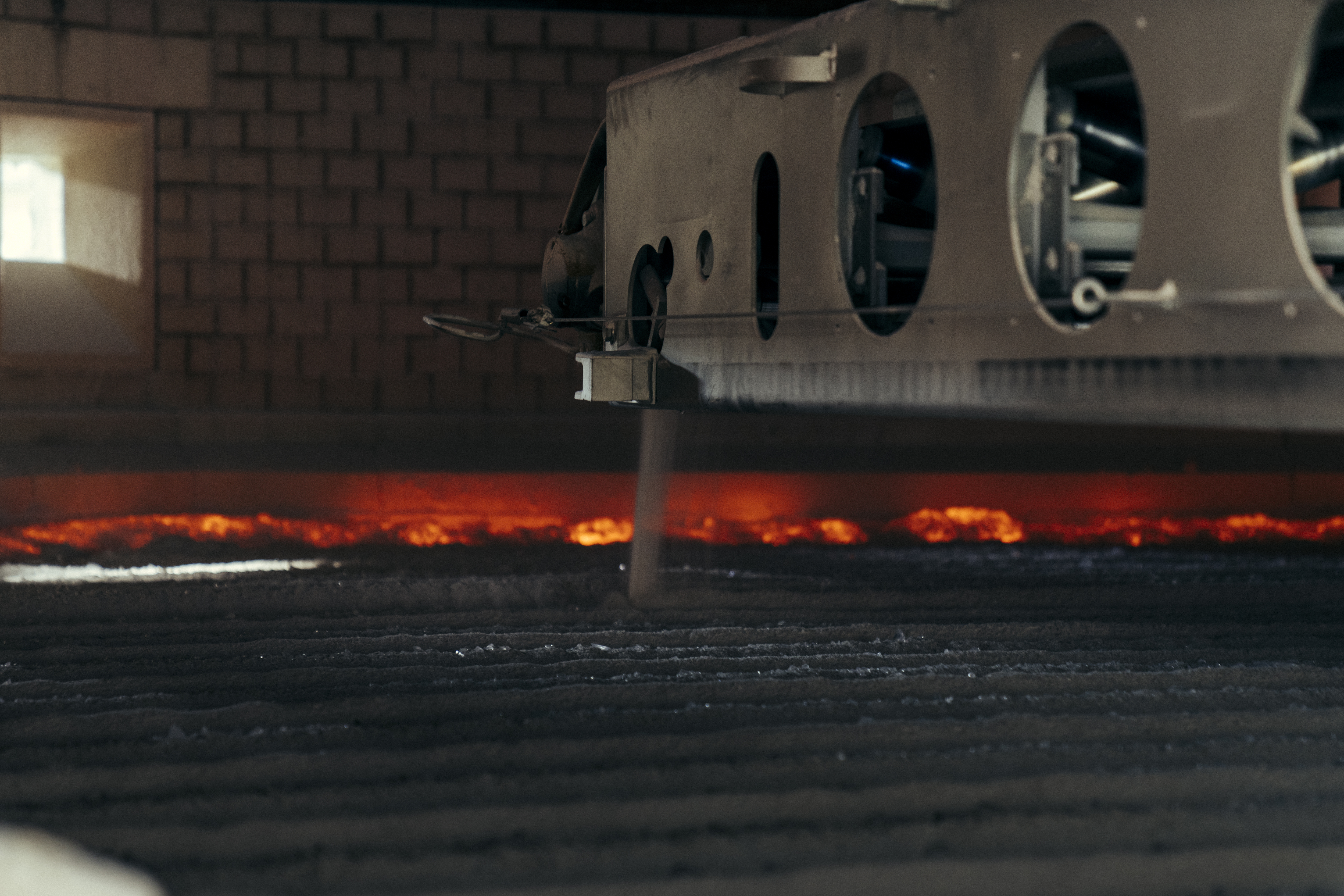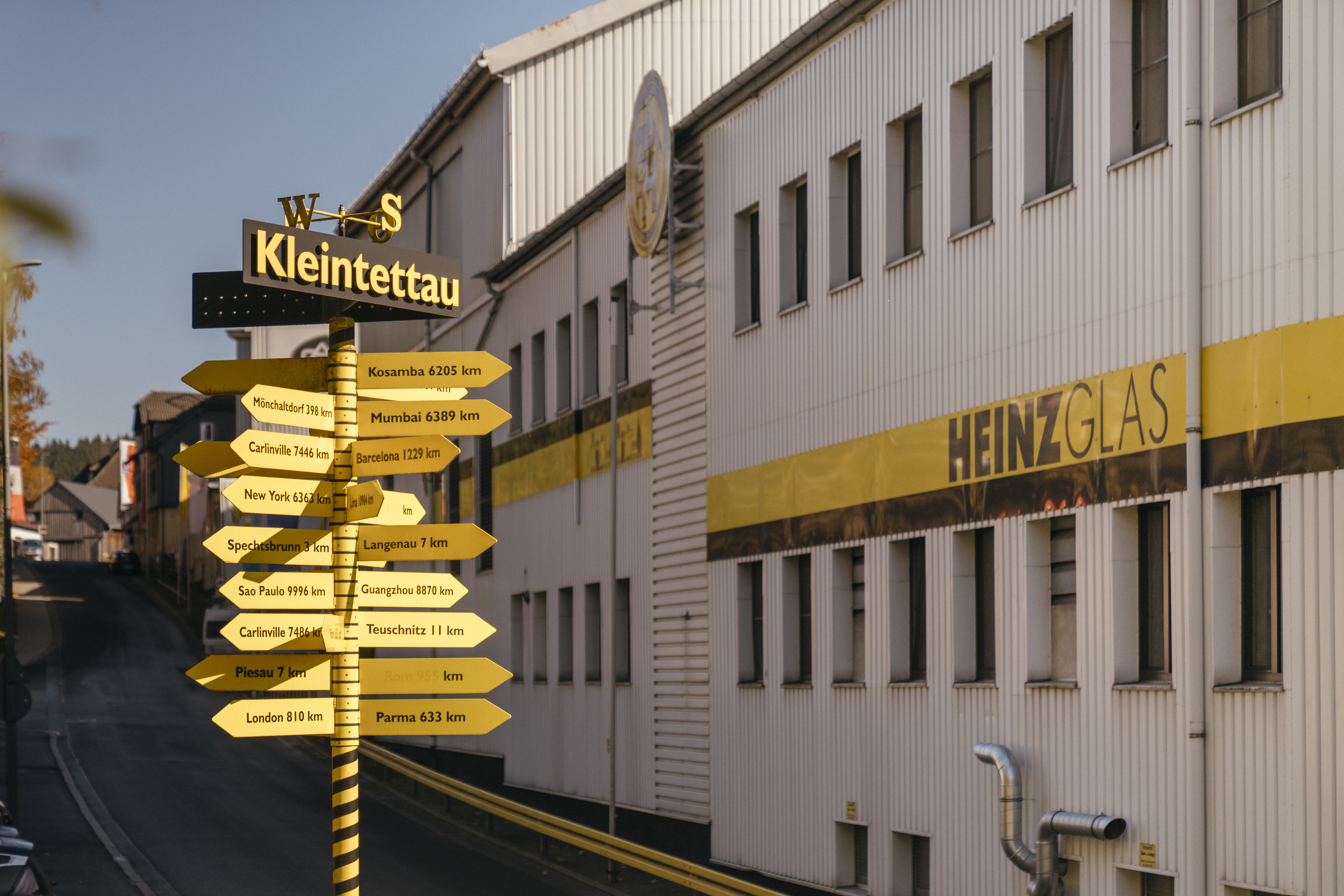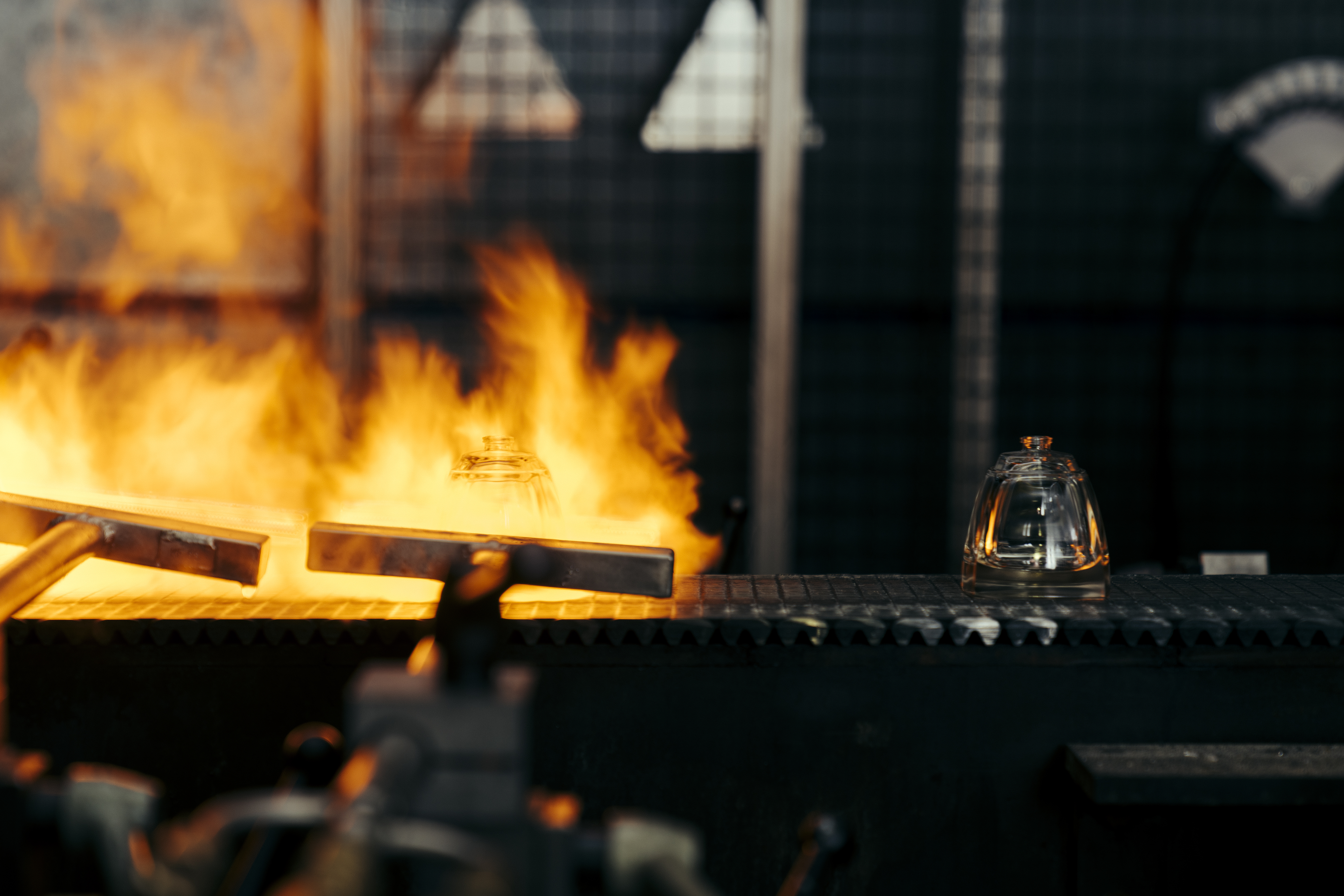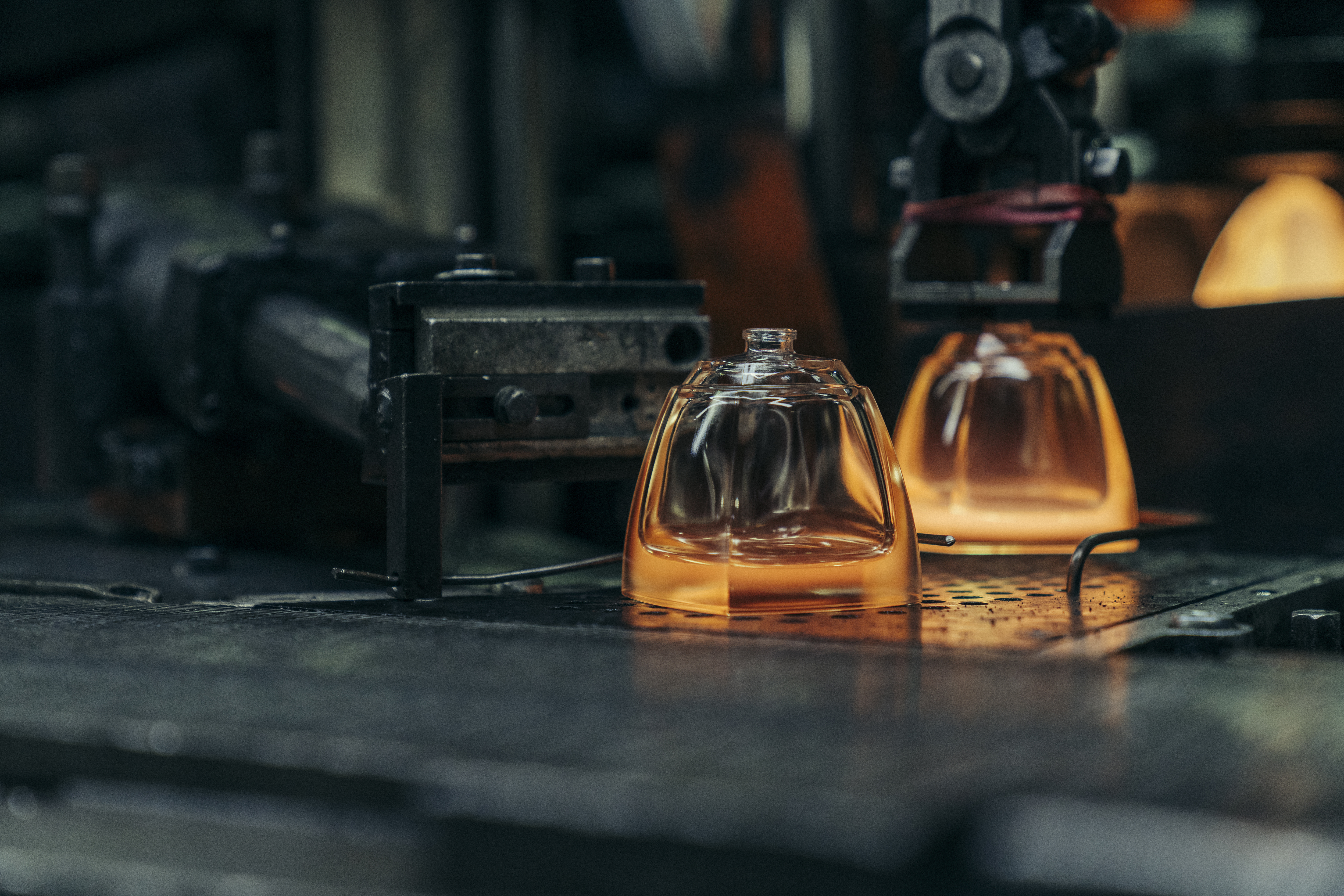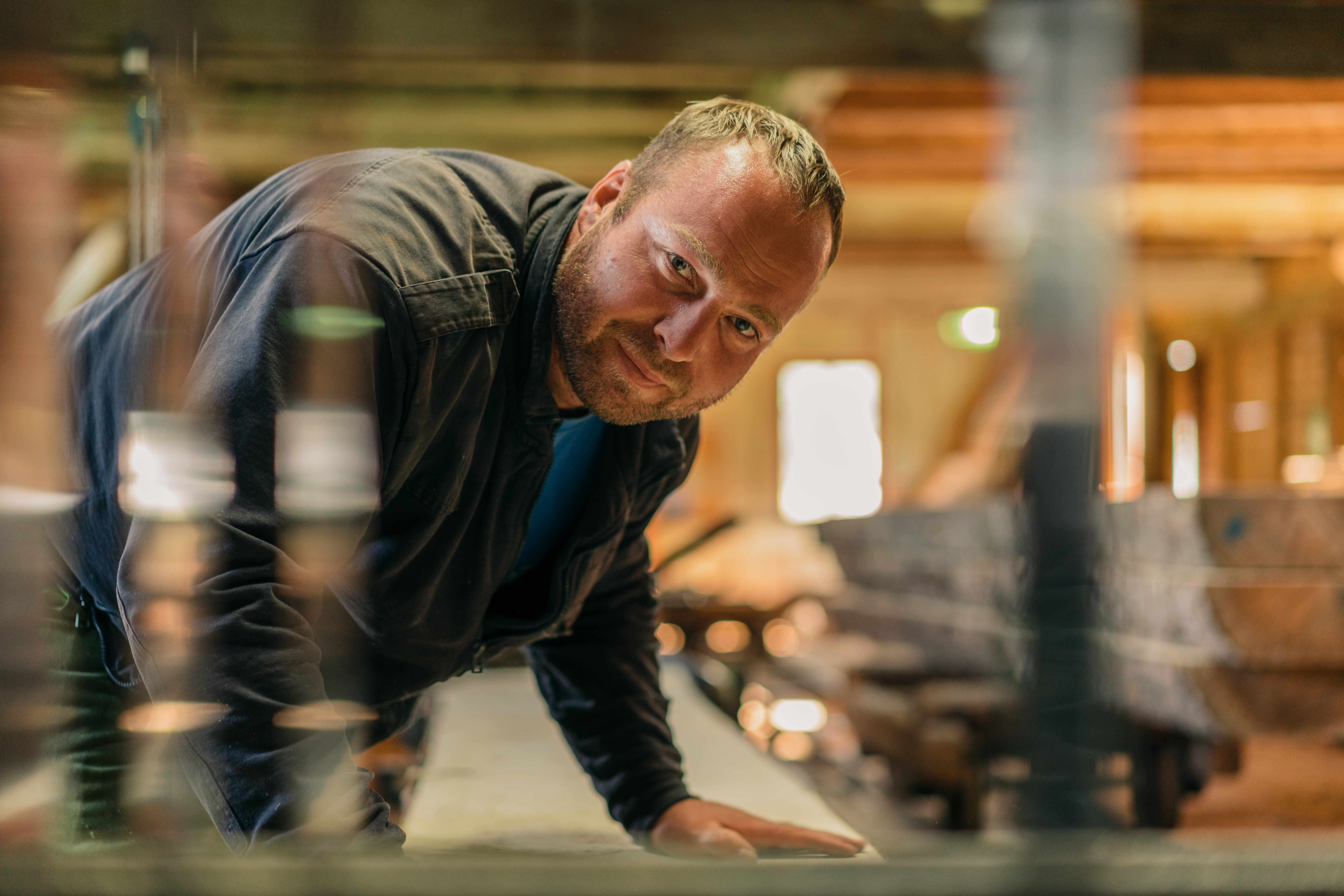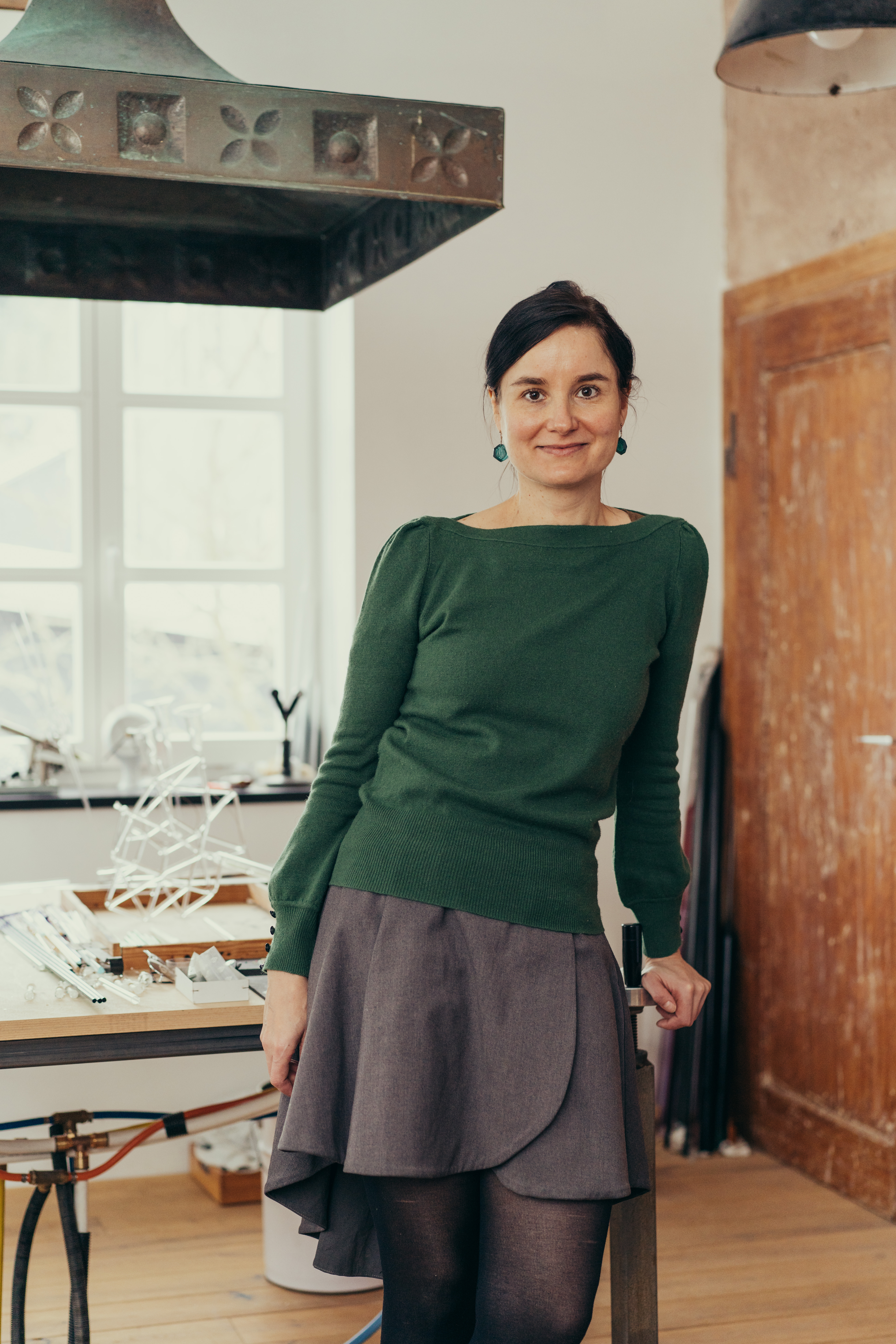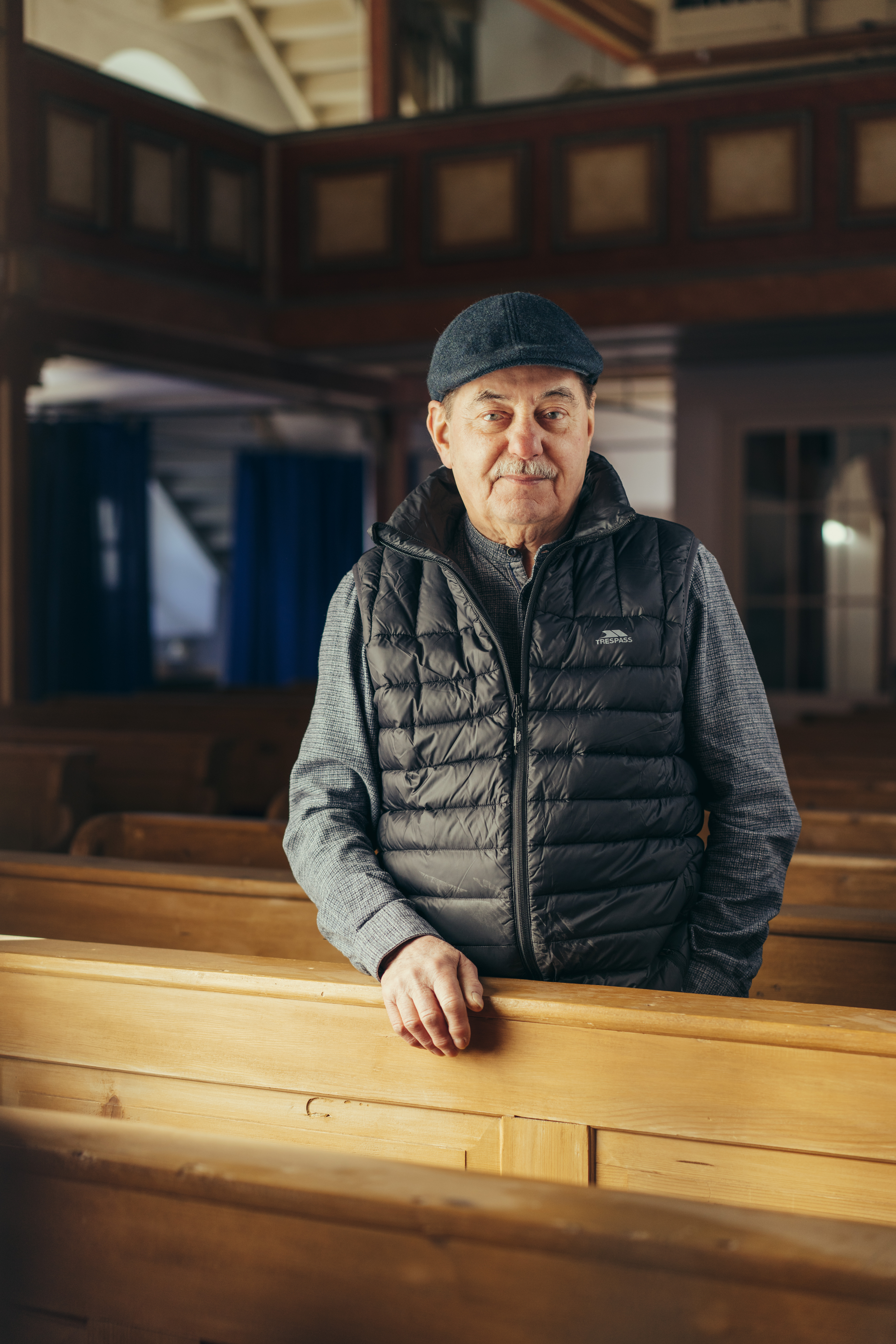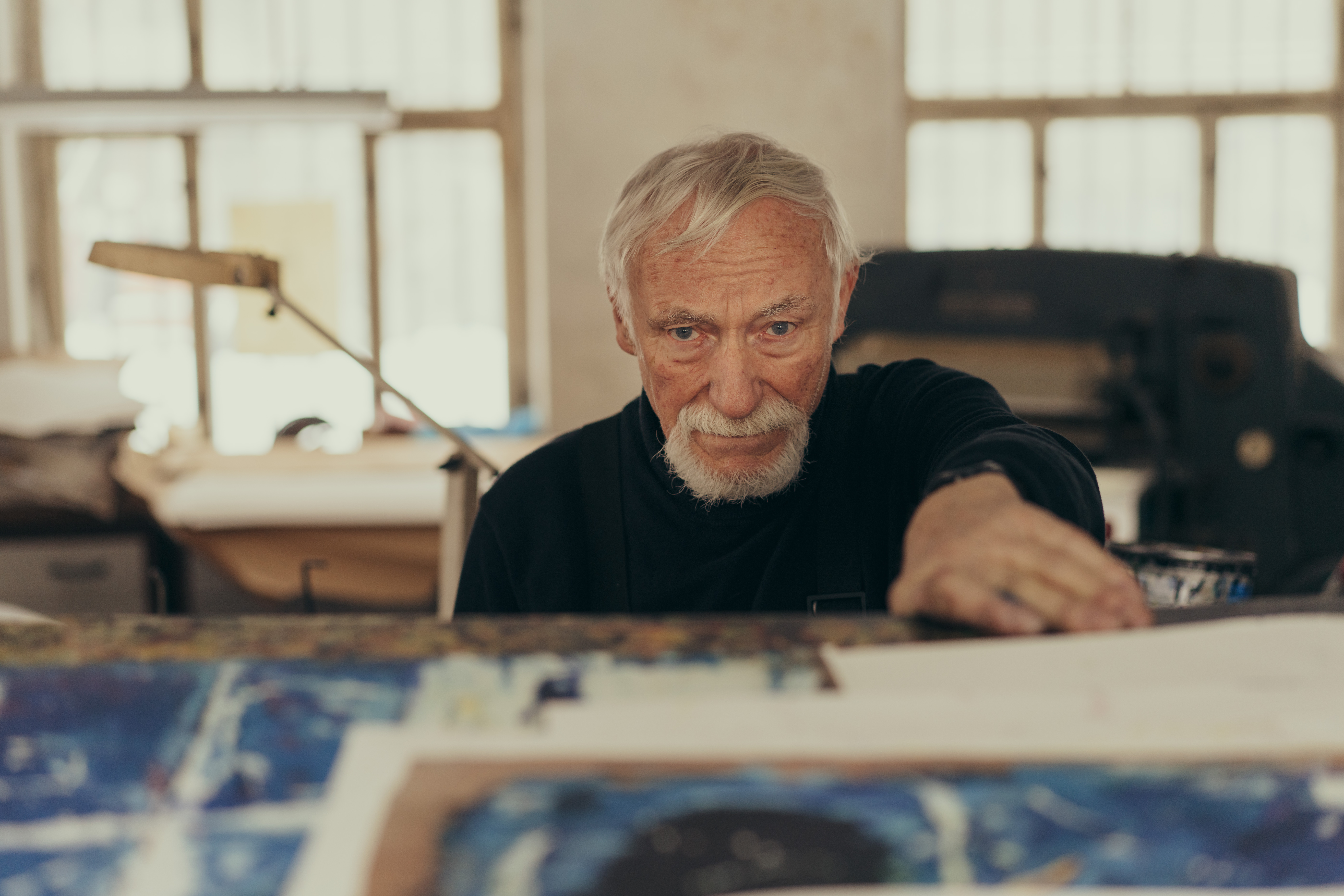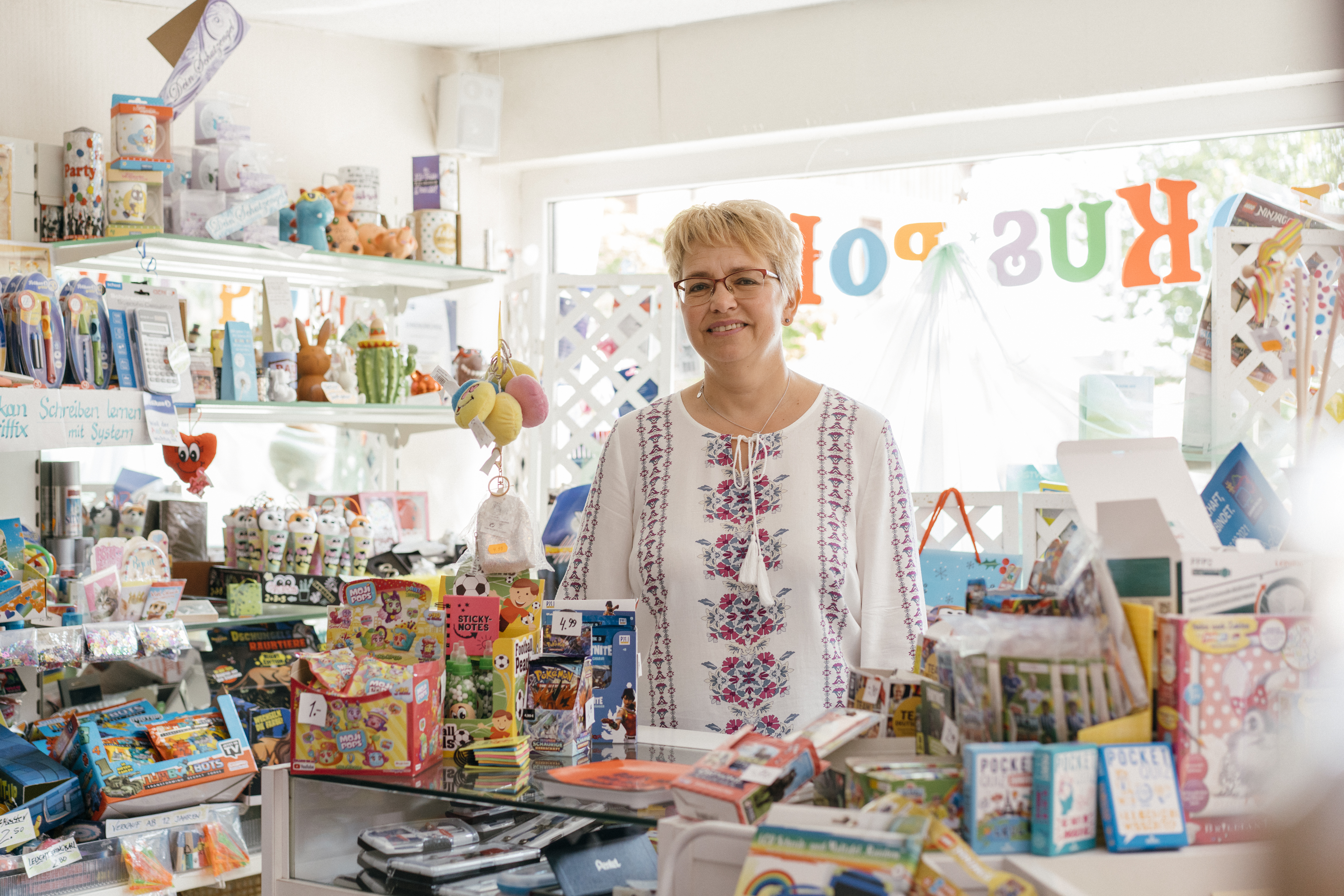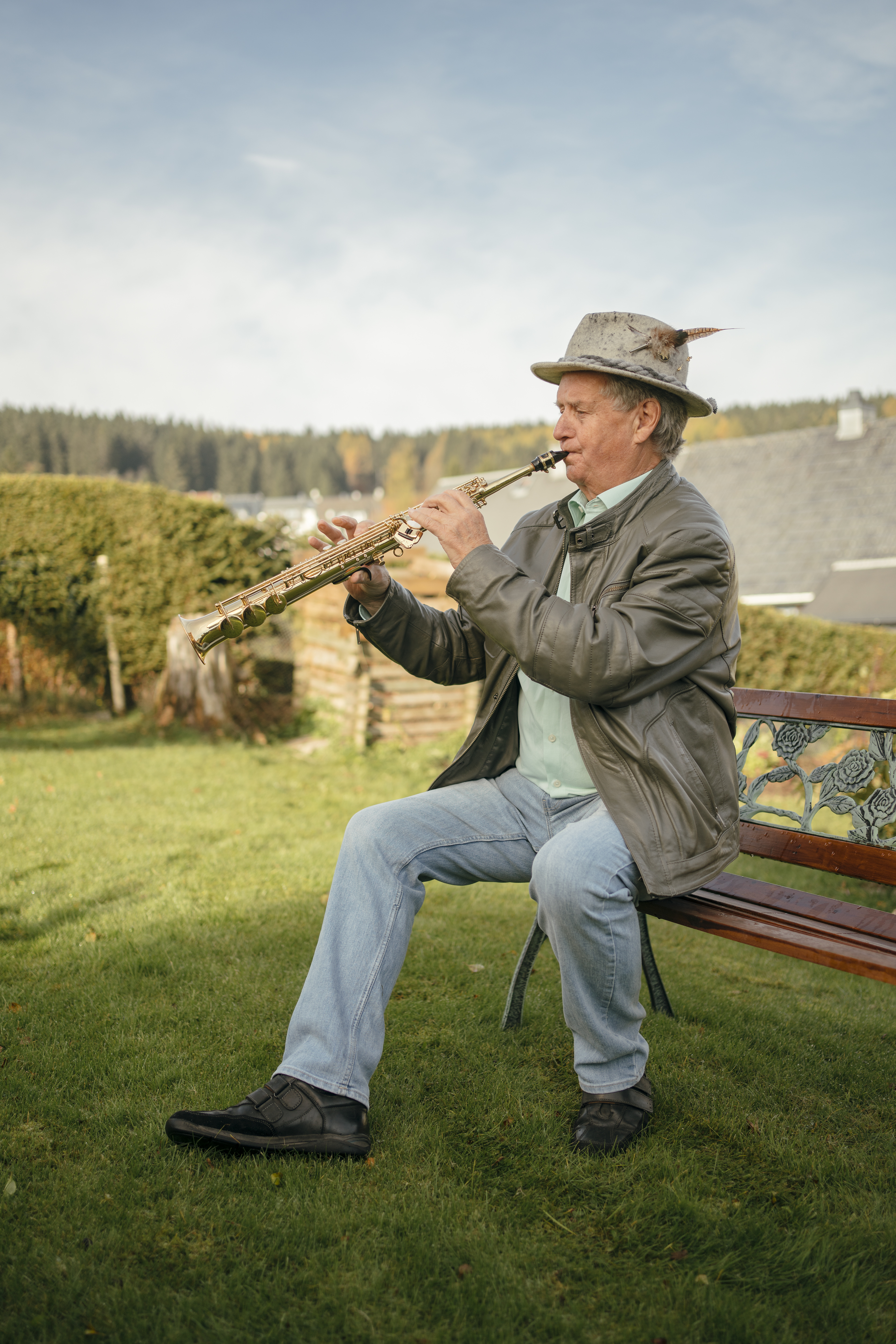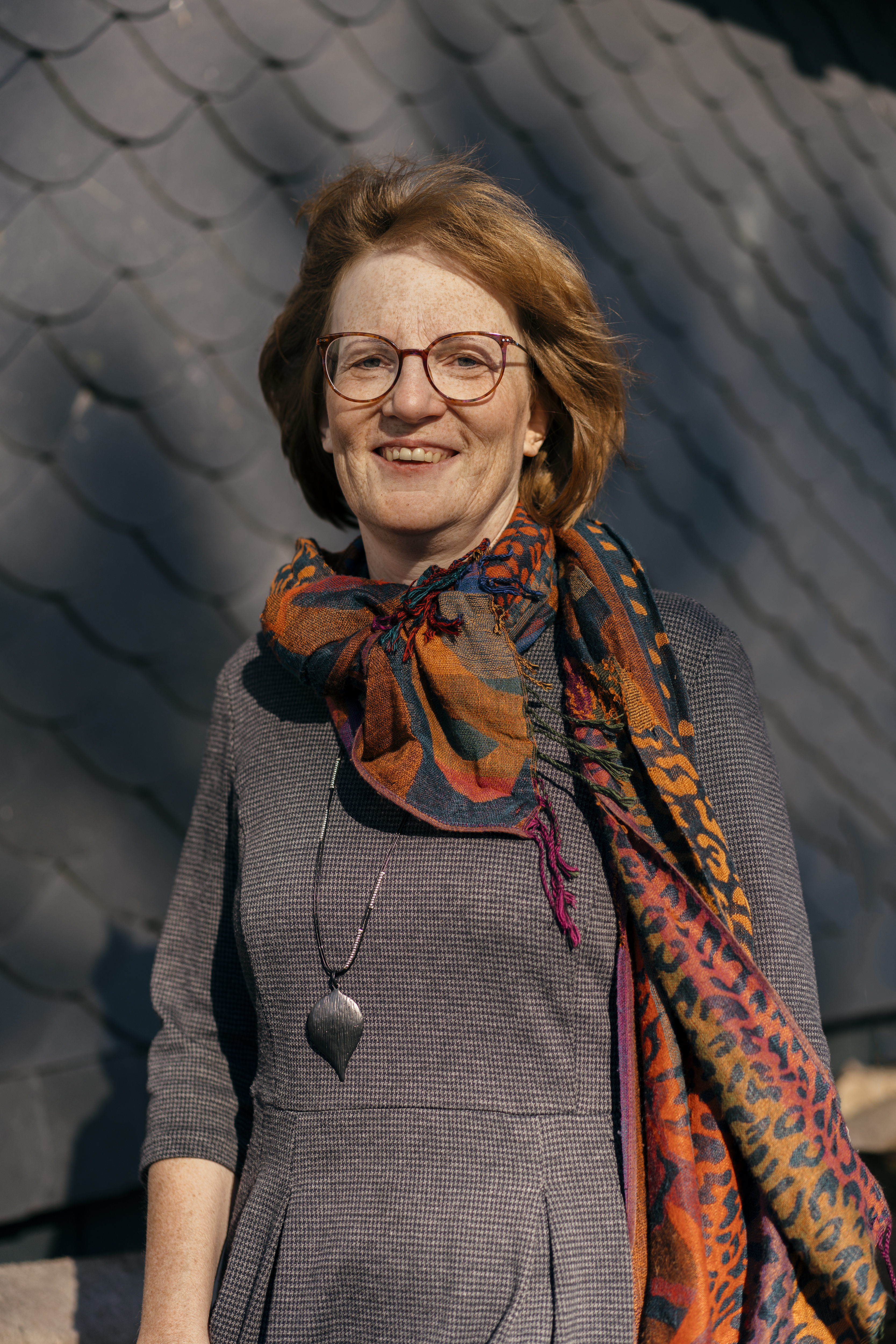HER(R)BERGSKIRCHEN
SHOW ON MAP
CARLETTA HEINZ
THE PACKER
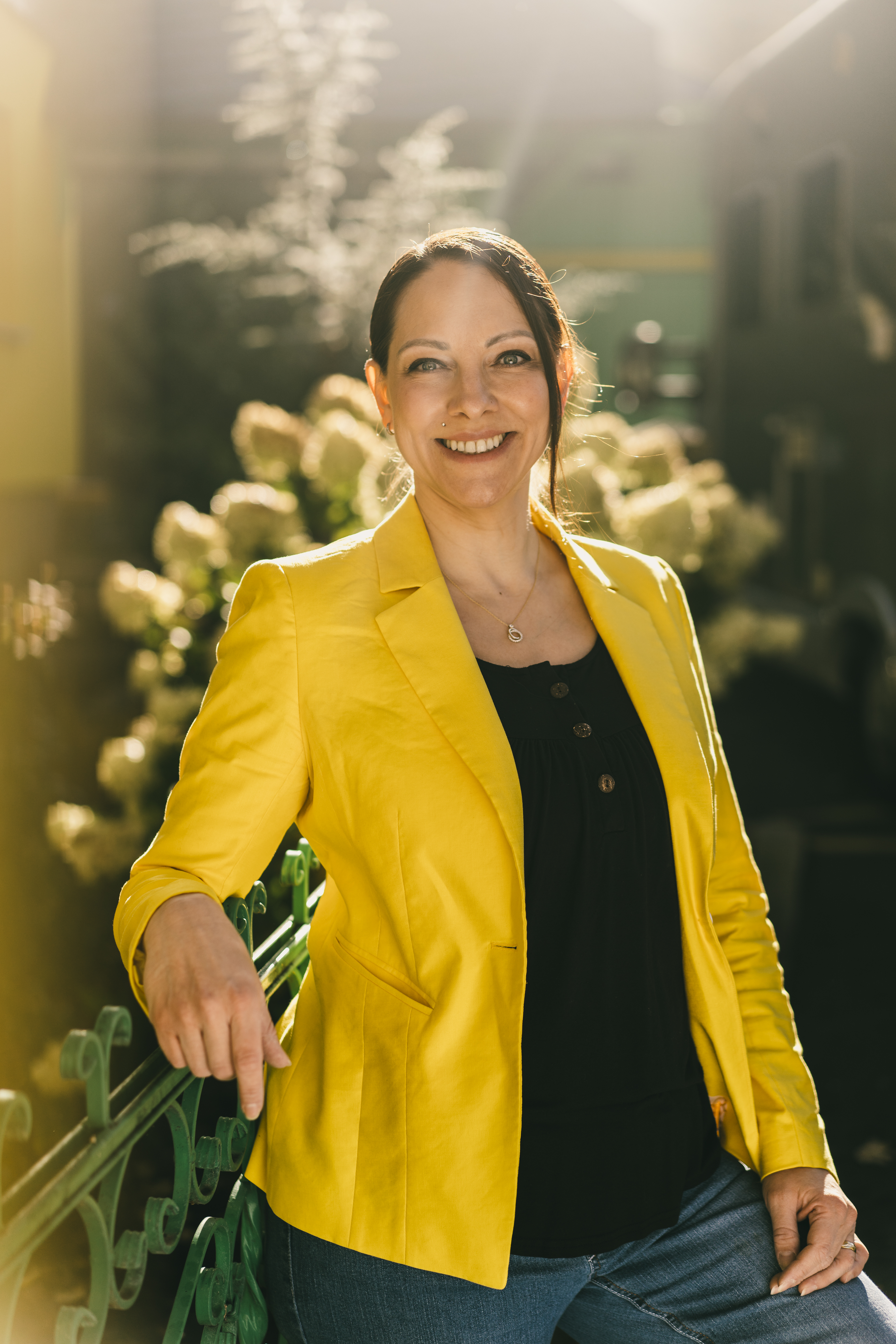
"The path leading to my school went right through here" says Carletta Heinz, pointing outside toward the windows of her house in Kleintettau. "The house I grew up in is also on the company grounds," she says. Carletta, who is now 37 and the managing director of Heinz-Glas, became a mother a few weeks ago. Although she is not sitting at her desk in the company building, she’s still right in the middle of the action. She mentions that she is “very unprofessionally” mixing the nursery with her home office. It seems that private and professional life have always been two sides of the same coin for Carletta, who recently took over her current position from her father Carl-August. "When I say that I grew up amidst glass production, I mean that quite literally. Even as a child, I was always exploring the production halls, which would no longer be possible today. But I knew that I wasn't allowed to touch anything." Today, the Heinz business continues a story that began 13 generations ago, when they started the second German plant in Thuringia. "That was a great driving force that made me say, I think this is worth preserving," says Carletta. The company has sites in Kleintettau, Upper Franconia, and Piesau and they employ 3200 people worldwide in 27 different working time models. "In management, the proportion of women is 50:50, but the further down we look into production, it still is a very different picture. We try hard to accommodate all different kinds of needs.
When I say that I grew up amidst glass production, I mean that quite literally. Even as a child, I was always exploring the production halls, which would no longer be possible today. But I knew that I wasn’t allowed to touch anything.
This doesn't just apply to people with children, but also to family members in need of care, for example. But unfortunately nothing can be done about the risks of heat exposure and shift work. Today, as in the days of reunification, we can only be grateful for the former guest workers who have remained loyal to the company and the site for three generations. The machines have to run around the clock, otherwise production is simply not profitable," says Carlettal. And she knows what she's talking about. Glancing at her diploma on the wall, she says she somewhat regrets studying administration and business informatics rather than mechanical engineering. Because her heart has always beaten more strongly for production, Carletta also supervised the technical department herself until recently, and the development department is directly connected. "Glass is simply a fascinating material - it’s very hot and loud and impressive. Most people who come to a glass factory for the first time still feel that way as adults - you can get caught up in it." Which is by no means to say that time stands still at the factory. Since the first large drinking vessels and containers were produced, primarily for pharmacies in the founding years around 1622, Heinz-Glas has specialized primarily in delicate perfume bottles and cosmetics packaging. "We experiment a lot. For example, there is a vat for opal glass. This special glass hardly lets any UV light through, so the contents packaged in it need fewer preservatives," Carletta says with a little gleam in her eye. After 16 years of working in Nuremberg, she could have made a different decision: "My father always gave me the choice, if only because he experienced it differently and wanted to do better."
Glass is simply a fascinating material - it’s very hot and loud and impressive. Most people who come to a glass factory for the first time still feel that way as adults - you can get caught up in it.
But she also says she is glad to have moved on because the region needs new, young energy, and also because she feels comfortable here, close to the family and community associations. “I myself am a member of the fire department, haha, though currently not yet active again, of course," says Carletta with a smile. "And what my father invested in local culture with our foundation - sports activities, the Tropical House, the Bottle Glass Museum - I carry on. In my own way."ls heißt, dass die Zeit im Werk stillsteht, denn seit der Fertigung der ersten groben Trinkgefäße und Behälter, vornehmlich für Apotheken in den Gründungsjahren seit 1622, hat sich Heinz-Glas vor allem auf filigrane Parfümflakons und Kosmetikverpackungen spezialisiert. „Wir experimentieren viel. Es gibt beispielsweise eine Wanne für Opalglas. Dieses besondere Glas lässt kaum UV-Licht durch, sodass der darin verpackte Inhalt weniger Haltbarkeitsmacher braucht“, erzählt Carletta Heinz mit einem kleinen Leuchten in den Augen. Nach 16 Jahren in Nürnberg hätte sie sich anders entscheiden können: „Mein Vater hat mir immer die Wahl gelassen, alleine schon deswegen, weil er es anders erlebt hat und besser machen wollte.“ Aber sie meint auch, dass sie froh sei, zurückgezogen zu sein – weil die Region die jungen Impulse brauche und weil sie sich hier wohl und der Familie nah fühle und den Zusammenhalt schätze, auch dank des Vereinswesens. „Ich selbst bin Mitglied bei der Feuerwehr, haha, also aktuell natürlich noch nicht wieder aktiv“, erzählt Carletta Heinz schmunzelnd. „Und was mein Vater mit unserer Stiftung in die Kultur vor Ort investiert hat – Sportangebote, das Tropenhaus, das Flakonmuseum – trage ich weiter. Auf meine Art.“
